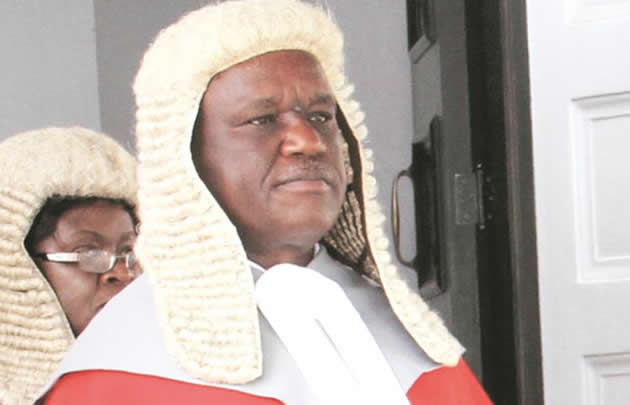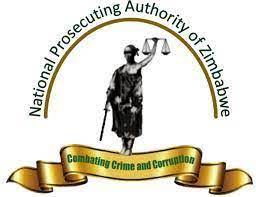Justice Minister’s powers constitutional:ConCourt

Daniel Nemukuyu, Harare Bureau
POWERS vested in the Minister of Justice, Legal and Parliamentary Affairs to approve regulations governing the holding of elections are constitutional and they do not interfere with the independence of the Zimbabwe Electoral Commission, the Constitutional Court has ruled.
Dismissing a constitutional challenge by Harare lawyer Mr Justice Mavedzenge, Chief Justice Luke Malaba, sitting with eight other judges of the apex court, ruled that Section 192 (6) of the Electoral Act was in sync with the supreme law.
The piece of legislation in question makes it a requirement for the minister to first approve of election regulations crafted by Zec before they are gazetted into law.
Mr Mavedzenge last year approached the Constitutional Court, arguing that the law violates Sections 235(1), 235(3) and 67(1) of the supreme law of the country.
He argued that the law empowers the minister to control and even block the chairperson of Zec from executing the regulation-making function in preparation of elections.
Chief Justice Luke Malaba ruled that Mr Mavedzenge’s interpretation of the word “approve” was wrong and that the minister’s function in that respect was lawful.
“In my view, the applicant has not made out a case where the word ‘approve’ can be construed to mean direct or control as contended before us,” he said.
“To ascribe such a meaning to the word would constitute a fundamental departure from its ordinary meaning.
“The provision must, therefore, be given an interpretation that is purposive in order to give a true reflection of the intention of the legislature in requiring the approval of the minister before promulgation of any regulations prepared by Zec.
“In construing the provision within the context of this debate, the word ‘approve’ must be read as defined in the dictionary to signify satisfaction with or confirming, sanctioning or agreeing with.”
Chief Justice Malaba held that the minister’s role does not interfere with the independence of Zec and that he simply chips in to ensure compliance with the law.
“The view that I take is that the requirement for the minister’s approval of the regulations does not give the minister power to govern or regulate the functions of the Zimbabwe Electoral Commission, nor does it diminish the power and independence of ZEC to craft regulations that accord with its mandate both in terms of its enabling Act or the Constitution,” reads the judgment.
“The purpose of the approval to be sought from the minister is for him to exercise an administrative function to ensure that the regulations comply with the law.”
Through his lawyer, Advocate Tazorora Musarurwa, Mr Mavedzenge argued that Zec was an independent electoral body and should be allowed to operate as such, without the minister’s interference.
He said it was surprising that the current situation, where the minister “controls” an electoral body, was only obtaining in Zimbabwe and not in other Southern Africa Development Community (Sadc) member States.
In response to the application, Justice, Legal and Parliamentary Affairs Minister Ziyambi Ziyambi’s representative, Mrs Olivia Zvedi, who was also representing the Attorney-General’s (AG) Office, said the need for the minister to approve the regulations promulgated by Zec was not in any way unconstitutional.
Mrs Zvedi said it was inconceivable how the approval, by the minister, of the regulations promulgated by Zec would violate Mr Mavedzenge’s rights to elections.
In the application, Mr Mavedzenge cited Minister Ziyambi, Zec chairperson Justice Priscilla Chigumba and Attorney General Advocate Prince Machaya as respondents.







Comments